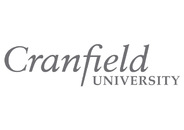

Environment
Innovative Virtual Sustainability Conference Announced
Next week Cranfield University and Globescan are hosting the Sustainability Innovation Exchange, a virtual online conference for anyone with an interest in sustainability. The conference will explore how policy can channel the innovative power of individuals towards more sustainable ways of living.
The Sustainability Innoation Exchange is a virtual workshop which will be hosted by Globescan on their website. The event is a vital tool for collaborative engagement on a number of key topics related to how public policy can enable this sustainability innovation.
The conference is part of the largest project of its kind commissioned by the EU and will take place in six sessions each with a different policy theme. They are education, networks, funding, scaling-up, impact and open policy making. Globescan and Cranfield University explain them as:
– Education: “In this topic we will discuss what we need to do better or do differently so that we are we are teaching and empowering individuals to innovate. How can we encourage the natural creativity of children so that it grows and develops and comes with them into their future roles in society? How can we direct that creativity in ways that benefits our planet and society? We will be talking about learning about the environment and social issues, but also about learning how to innovate and collaborate with people who are different from in order to solve the sustainability challenges that face us.
– Networks: “In this room we will be talking the ways in which we can provide innovators, or would-be innovators, the emotional and practical support to turn their ideas into reality. How can we help entrepreneurs to make connections they need to access funding, skills and expertise, and to connect with each other so that successes, and failures, can be shared and learnt from? And importantly, how can networks take good innovations quickly to scale through both growth and replication so that their positive can be maximised? Throughout the discussion, we will also be considering the role of businesses and universities in these networks.”
– Funding: “Here we will be talking about funding for sustainability innovations. What can be done for those innovating for sustainability to simplify and ease the process of setting up a venture and securing finance? How can we simplify access to the funding that is already available and the process of setting up a new legal entity? How can we facilitate a positive role for business (through corporate venturing or incubators/accelerators) and the public sector in funding for these innovations? And what can be done at a more systemic level to transition from a short term, financially driven system to a longer term social /environmental impact driven system?”
– Scaling up: “In this topic we will be talking about how we encourage the adoption of innovation to optimise environmental/social impact. How can we encourage corporates to work with entrepreneurs to roll out or replicate their innovations, whilst ensuring fair appropriation of returns to these partnerships? Should we incentivise businesses to collaborate with their end users in order to develop sustainable solutions that are more likely to be acceptable and therefore adopted? Do we need to incentivise universities differently so that they are focus on maximising the positive impact of new knowledge rather than the creation of knowledge alone?”
– Impact: “This session is about the metrics we need to evaluate environmental / social impact, and also the system that we need to move towards which prioritises and rewards innovations which have a positive environmental / social impact. We will be discussing how to quantify the potential environmental/social impact of innovation, and the need to make measures understandable and comparable. We will also be discussing the need to change social attitudes so that non-financial impacts are valued (as highly as financial return) and that we embrace experimentation, and failure, as necessary in a society which is innovating its way towards more sustainable ways of living.”
– Open policy making: “This session is about changing the way that policy itself is created so that it is more open to participation from the stakeholders that will ultimately be affected by it. Would this participation result in innovation in the types of policies which would be put in place, and would it help policies to achieve their desired impact? We will be discussing what models of participation might work. What would motivate people to take part? What mechanism would enable this participation to take place? We will also be considering policymakers – the people. How could they be better equipped to operate in an environment of openness, perhaps through diversity of background of experience, or through the sharing of best practice across departmental and national boundaries?”
The innovative event will bring together hundreds of entrepreneurs, business leaders, policy makers, thought leaders and citizens with an interest in sustainability, to shape policy recommendations on how best to support innovation for sustainability. These policy recommendations are to be delivered to Brussels by the end of this year.
The first session of the Sustainability Innovation Exchange will run from 10 – 11.30am BST (11 – 12.30pm CEST), and the second session will run from 2 – 3.30pm BST (3pm – 4.30pm CEST). The full schedule is available here.
You can find out more on the Globescan website.


 Environment12 months ago
Environment12 months agoAre Polymer Banknotes: an Eco-Friendly Trend or a Groundswell?

 Features11 months ago
Features11 months agoEco-Friendly Cryptocurrencies: Sustainable Investment Choices

 Features12 months ago
Features12 months agoEco-Friendly Crypto Traders Must Find the Right Exchange

 Energy11 months ago
Energy11 months agoThe Growing Role of Solar Panels in Ireland’s Energy Future





























